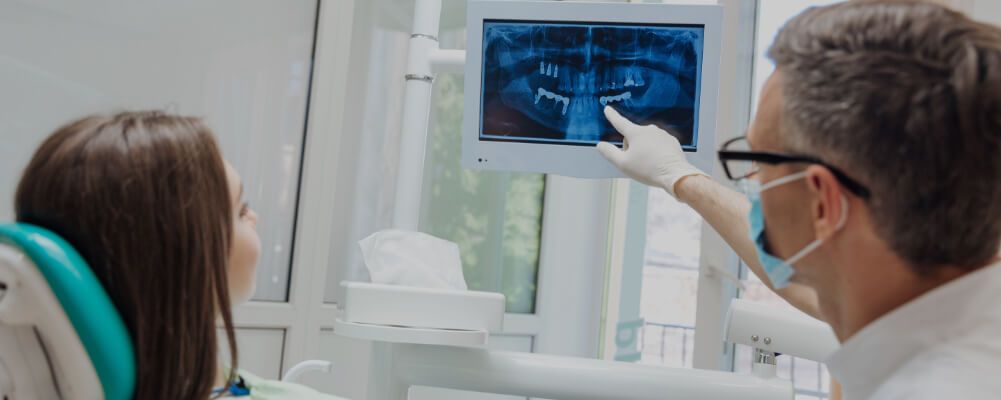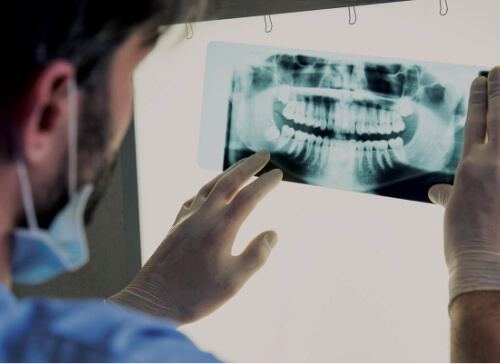Dental X-Rays
Dental radiographs are vital, preventative, diagnostic devices that contribute valuable data not apparent during a routine dental exam. Dentists and dental hygienists follow this information carefully and precisely detect concealed dental abnormalities and create an exact treatment plan. Without X-rays, intricacy areas may go undetected.
 Dental X-rays May Reveal
Dental X-rays May Reveal
- Cysts and abscesses.
- The loss of bone structures.
- Benign and malignant tumors.
- Deterioration within the teeth.
- Developmental deformities.
- Weak tooth and root positions.
- Difficulties inside a tooth or below the gum line.
Identifying and treating the dental predicaments at an early stage will spare you time, money, and needless distress for your teeth.
Are Dental X-rays Safe?
Every day, everywhere we go, we are all exposed to radiation from our environment. The digital X-rays provide a significantly less low level of radiation contrasted to traditional dental X-rays. This is a better option for the patient’s health and safety. Digital X-ray is faster and more convenient, reducing your time in the dental chair. Furthermore, since the images are digitally captured, there is no need to develop the X-rays, therefore excluding the distribution of toxic waste and chemicals into the environment.
Although digital X-rays produce a low transmission level and remain considerably safe, dentists will still take unavoidable precautions to limit radiation exposure to patients. These precautions include only taking those X-rays necessary and using lead apron protection to shield the body.
How Often Should Dental X-rays Be Taken?
The requirement for dental X-rays depends on each patient’s individual health needs. Your dentist and dental hygienist will advise required X-rays based upon your medical and dental history analysis.
For new patients, a full mouth is highly recommended. A complete series can last up for three to five years. Bite-wing X-rays are taken during your follow up visits and are suggested once or twice a year to detect new dental problems.













 Dental X-rays May Reveal
Dental X-rays May Reveal

